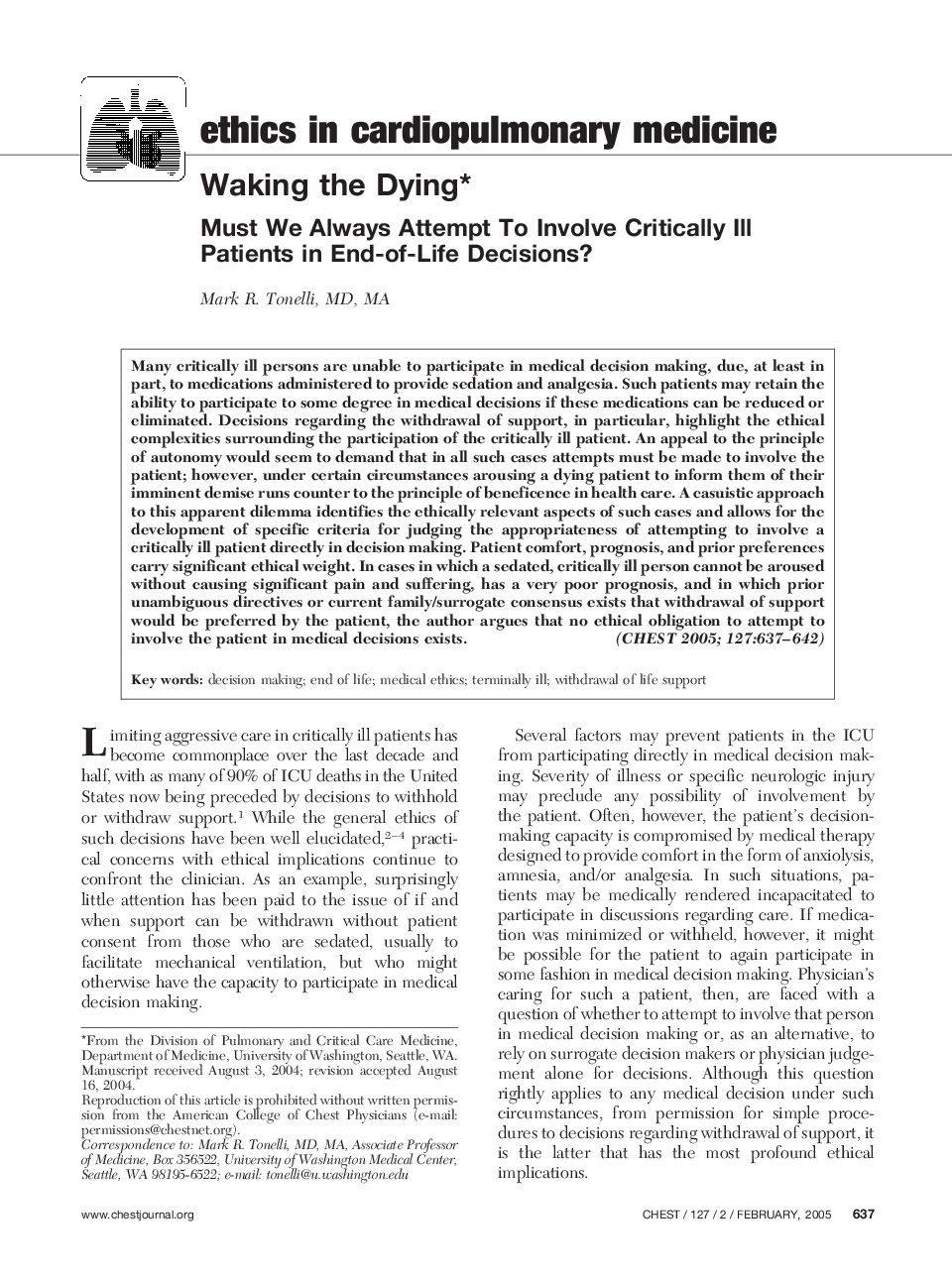| Article ID | Journal | Published Year | Pages | File Type |
|---|---|---|---|---|
| 9164136 | Chest | 2005 | 6 Pages |
Abstract
Many critically ill persons are unable to participate in medical decision making, due, at least in part, to medications administered to provide sedation and analgesia. Such patients may retain the ability to participate to some degree in medical decisions if these medications can be reduced or eliminated. Decisions regarding the withdrawal of support, in particular, highlight the ethical complexities surrounding the participation of the critically ill patient. An appeal to the principle of autonomy would seem to demand that in all such cases attempts must be made to involve the patient; however, under certain circumstances arousing a dying patient to inform them of their imminent demise runs counter to the principle of beneficence in health care. A casuistic approach to this apparent dilemma identifies the ethically relevant aspects of such cases and allows for the development of specific criteria for judging the appropriateness of attempting to involve a critically ill patient directly in decision making. Patient comfort, prognosis, and prior preferences carry significant ethical weight. In cases in which a sedated, critically ill person cannot be aroused without causing significant pain and suffering, has a very poor prognosis, and in which prior unambiguous directives or current family/surrogate consensus exists that withdrawal of support would be preferred by the patient, the author argues that no ethical obligation to attempt to involve the patient in medical decisions exists.
Related Topics
Health Sciences
Medicine and Dentistry
Cardiology and Cardiovascular Medicine
Authors
Mark R. MD, MA,
